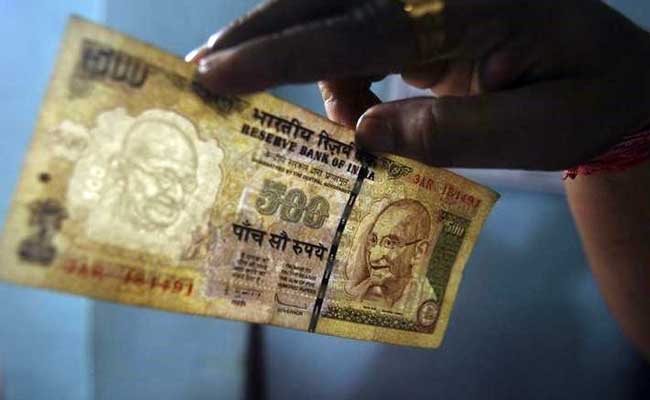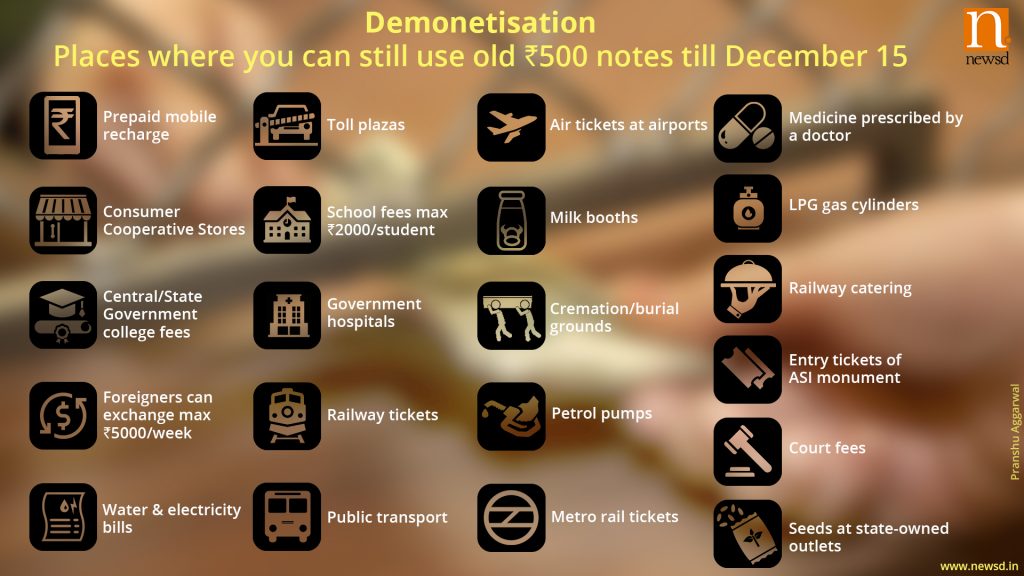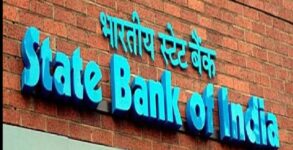
Central government has stopped the exchange of demonetised notes over the bank counter from Friday.
The old notes can now only be deposited in a person’s bank account and then the person can withdrew valid currency through cheques or ATMs.
Government has extended the use of old 500 rupee notes at certain utilities. The old ₹ 1000 note cannot be used for any service from Friday onwards.
Old ₹500 notes can be used till December 15 at the following places:
- Toll plazas from December 3 to December 15.
- Payment of school fees up to Rs. 2,000 per student in central government, state government, municipality and local body schools.
- Payment of fees in central or state government colleges.
- Pre-paid mobile top-up to a limit of Rs. 500 per top-up.
- Consumer cooperative stores operated under authorisation of central or state governments with identity proof (Safal, Mother Dairy) up to Rs. 5,000 at a time.
- Milk booths under central or state governments.
- Payment of current and arrear dues to utilities will be limited to only water and electricity.
- Payments in government hospitals for medical treatment.
- Use in all pharmacies for buying medicines with doctor’s prescription.
- Railway ticketing counters.
- Bus ticket counters of government or public sector undertakings.
- Airline counters at airports for purchase of tickets.
- Payments at crematoria and burial grounds.
- Use at international airports for arriving and departing passengers up to Rs. 5,000.
- Purchase of LPG gas cylinders.
- Payments towards on-board catering during travel by rail.
- Purchase of tickets for suburban and metro rail travel.
- Purchase of entry tickets monument maintained by the Archaeological Survey of India.
- Payments towards fees, charges, taxes or penalties, payable to central or state governments including municipal and local bodies.
- Payments towards utility charges including water and electricity, but no advance payments.
- Payment towards court fees.
- Payment towards purchase of seeds from designated state-run outlets.

















